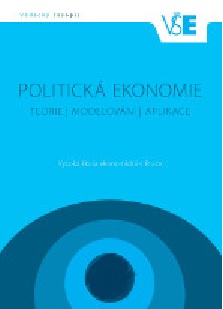China's Political Risk and Transition to Cleaner Energy: Evaluating the Role of Political Economy for COP27
China's Political Risk and Transition to Cleaner Energy: Evaluating the Role of Political Economy for COP27
Author(s): Difei Hu, Weizheng Wang, Xiaohan Gu, Xiao GuSubject(s): Economy, National Economy, Energy and Environmental Studies, Political Sciences, Environmental and Energy policy, Socio-Economic Research, Geopolitics
Published by: Vysoká škola ekonomická v Praze
Keywords: Political risk index; renewable electricity; public-private partnership investment in energy renewableoutput; public-private partnership investment in energy; renewable energy consumption; GDP; China
Summary/Abstract: In the pursuit of sustainable development, economies such as China are placing a paramount emphasis on significantlyaugmenting the utilization of renewable energy sources. This marks a departure from conventionalresearch approaches that solely focused on macroeconomic determinants while investigating patterns of renewableenergy consumption. Thus, this research pursues to witness the relationship between the politicalrisk index (PRI), renewable electricity output (RELOP), public-private partnership investment in energy(PPINENR), and renewable energy consumption (RECNS) in China from 1984 to 2022. For data estimations,this study utilizes time series methods, which include DF-GLS and Johansen cointegration for unit rootand long-run equilibrium with FMOLS, DOLS and CCR as primary methods. The research also employsthe least squares method with break years and robust least squares as robustness check methods while forcausal relationships, we deploy the Granger causality approach. The outcomes assert that variables are foundstationary at differences and long-run equilibrium is confirmed among variables. The empirical estimationspredict that GDP and PPINENR reduce the RECNS in China in both short and long term. Furthermore,PRI and RELOP enhance renewable energy consumption in the short as well as long run. Therefore, policymakersshould mostly focus on the encouraging role of PPINENR towards renewable electricity to enhanceRECNS in developing economies, particularly in China. To achieve the targets of COP27, China should increaseits focus on the efficient utilization of public-private partnership investments and also manage the politicalrisks in the economy to promote renewable energy consumption and achieve a sustainable environment.Moreover, the causality analysis unearths that PRI could be utilized along with other variables to enhanceRECNS in China. The robustness check asserts similar and robust outcomes.
Journal: Politická ekonomie
- Issue Year: 72/2024
- Issue No: 2
- Page Range: 181-202
- Page Count: 21
- Language: English

